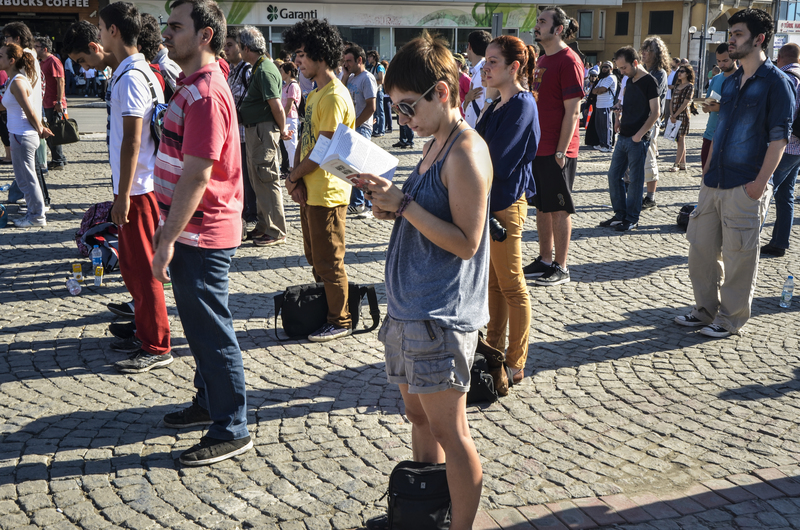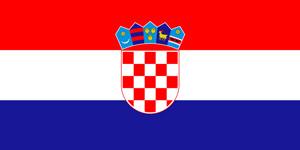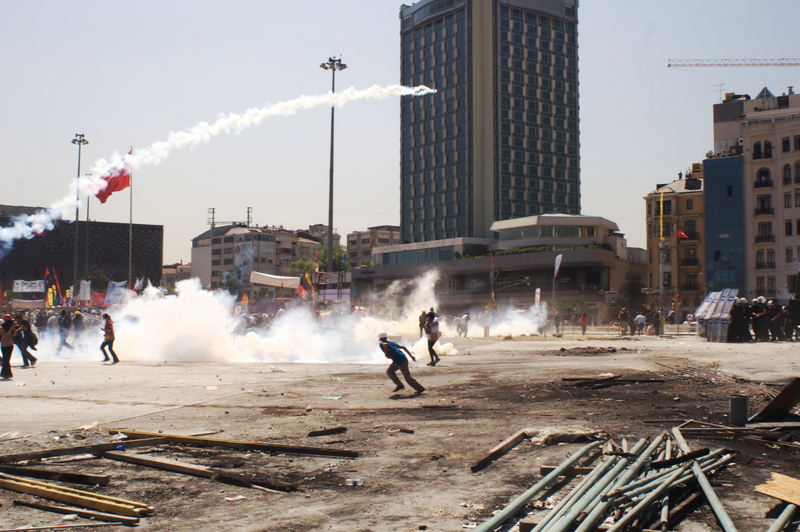12 Jul 2013 | Campaigns, Europe and Central Asia

A Turkish student attacked while participating in anti-government protests died Wednesday. Ali İsmail Korkmaz suffered a cerebral haemorrhage after unknown assailants attacked him during a protest in the northwestern city of Eskişehir on 2 June.
Korkmaz is the seventh protester to die since the start of unrest on 28 May, when protesters first rallied against the government’s plan to turn Gezi Park — one of Istanbul’s important green spaces — into a shopping mall. The protest movement quickly snowballed, after police used tear gas to disperse the initial 50 protesters.
On 28 July, members of IFEX are calling on seven people to stand silently in front of Turkish embassies around the world for seven minutes at 12:00 PM, in solidarity with Turkey’s ongoing protests. The silent protest has become a symbol of Turkey’s peaceful protesters. Participants are asked to wear the names of those who have been killed.
Mass protests eventually overtook Istanbul’s Taksim Square, and protests were sparked across the country, after the government’s heavy-handed response.
June saw clashes between protesters and security forces, as both camps battled for control of the square. Riot police forced protesters out of Taksim Square during an overnight raid on 11 June.
The Turkish Ministry of Interior has reported over 4,900 protesters in custody, as well as over 400 policemen and 4,000 demonstrators wounded.
Read more here about the campaign, and for details on how to organise a protest.
1 Jul 2013 | Europe and Central Asia
 At the stroke of midnight on Sunday, Croatia officially became the 28th member of the European Union. Croatia will be a “serious, responsible and active member”, said President Ivo Josipovic as he ushered in “the first day of our European future”. But threats to freedom of expression, especially in the media, remain.
At the stroke of midnight on Sunday, Croatia officially became the 28th member of the European Union. Croatia will be a “serious, responsible and active member”, said President Ivo Josipovic as he ushered in “the first day of our European future”. But threats to freedom of expression, especially in the media, remain.
While the 2012 accession referendum was passed with the lowest ever turnout in a prospective member state, and enthusiasm has since waned further, today is a momentous occasion for a country that was at war only two decades ago – and still grapples with the aftermath. However, with the European Commission regarding freedom of expression a ‘key indicator’ for a country’s readiness to join the union, we should acknowledge that while Croatia has taken some important steps forward, there is work left to do.
The constitution guarantees freedom of expression and the press, and Croatia has recently seen a modest increase in its Freedom House global press freedom ranking, from 78 in 2009, to 64 this year. However, this comes after a significant tumble from 41 in 2007. Croatian journalists, especially those covering war crimes, organised crime and corruption, face continued threats to their well-being and livelihoods.
OSCE media freedom representative, Dunja Mijatovic has repeatedly expressed concerns about public broadcaster HRTs apparent practice of silencing critical journalists. Most recently, in March this year, journalists Denis Latin, Katja Kusec and Ruzica Renic were fired from HRT in suspicious circumstances.
In 2008, Ivo Pukanic, a journalist covering organised crime, intelligence and war profiteering was killed by a car bomb outside his office. It was the third attempt on his life, and also killed his associate Niko Franjic. Six men were convicted for the murders in 2010, but it is still unknown who commissioned the assassination.
This is far from the only attack on Croatian media. In 2007, journalist Zalko Peratovic was detained and his house searched for violating state secrets after publishing a story on war crimes on his blog. Owner of Nova TV, Ivan Caleta, and former media mogul Miroslav Kutle, have both been shot at. Ninoslav Pavic, co-owner of Croatia’s biggest publishing house had his car bombed. Andrej Maksimovic, editor of OTV, has been attacked twice. This handful of examples goes some way in explaining the overall environment of fear and intimidation that has chilled press freedom and consequently freedom of expression in Croatia.
But challenges to freedom of expression exist outside of the realm of the media too. While prison sentences for defamation were abolished in 2006, libel is a criminal offense punishable by fines. Given the country’s recent history, hate speech is not taken lightly. Hate speech based on race, religion, sexual orientation, nationality, ethnicity, or unspecified ‘other characteristics’ are punishable by up to five years in prison — three years if committed over the internet. Insulting ‘the Republic of Croatia, its flag, coat of arms or national anthem’ can bring up to three years in prison.
Unlike neighbouring countries Croatia has not banned gay pride parades, but freedom of assembly for Croatia’s LGBT population has still be under threat. When a parade was organised for the first time in Split in 2011, the small number of participants were pelted with eggs and rocks by thousands of counter-protesters. The police also failed to investigate an attack on six young men and women in the aftermath of the parade. Authorities have also come under fire for failure to investigate persistent acts of vandalism aimed at the country’s minority Serbian Orthodox community.
Despite this, some aspects of freedom of expression have improved recently. This year’s Zagreb pride parade saw its biggest turnout ever, as 15,000 people attended the peaceful march. In another positive development, this February, parliament adopted a Freedom of Information Act. A new body will be set up, specifically dedicated to freedom of expression, with greater focus on public interest and proactive publishing of information.
Croatian leaders and EU politicians have taken pains to stress that accession does not automatically solve the country’s problems. While they were largely referring to the economic situation, the same principle goes for freedom of expression. You only have to look to EU members like Hungary to see that membership alone does not necessarily improve media freedom. For Croatia, as with other recent additions to the union, membership is merely an initial, tentative step towards increased political and civil rights for its citizens.
12 Jun 2013 | Europe and Central Asia, Turkey
In a bid to gain control of Taksim Square, Turkish security forces last night clashed with antigovernment protesters camped out in Istanbul’s centre. Sara Yasin reports
 Riot police raided Istanbul’s Taksim Square last night, in efforts to implement promises of Turkish Prime Minister Recep Tayyip Erdoğan, who vowed to bring an end to anti-government protests. Bulldozers cleared out barricades in the square early this morning.
Riot police raided Istanbul’s Taksim Square last night, in efforts to implement promises of Turkish Prime Minister Recep Tayyip Erdoğan, who vowed to bring an end to anti-government protests. Bulldozers cleared out barricades in the square early this morning.
The square was the site of an overnight territorial battle between protesters and security forces, who fired tear gas, stun grenades, water cannons, and rubber bullets onto the crowd. In the 10 days since unrest began in the country, three have been killed, 600 police officers injured, and approximately 5,000 wounded according to the Turkish Medical Association.
On BBC Radio 5 live this morning, Index on Censorship CEO Kirsty Hughes said that Erdoğan’s response “has been increasingly heavy-handed, and not constructive and open towards demonstrators.”
“In the last 24 hours, and just overnight last night, he’s veered towards a very tough response, which I think is going to inflame the situation,” Hughes added.
Several hundred protesters remain camped out in the neighbouring Gezi Park, where protests were initially sparked over a plan to turn the green space into a shopping mall, which snowballed into countrywide protests against the current government.
Turkey’s Broadcasting Authority yesterday said that four stations will be fined for covering the unrest, accusing them of incitement to violence.
Addressing a crowd including Erdoğan in Istanbul this week, EU commssioner Štefan Füle was critical of the government’s violent crackdown on protesters, and called for a “swift and transparent” probe into the violence. He also said that countries wishing to gain entry to the European Union should “aspire to the highest possible democratic standards and practises.”


 At the stroke of midnight on Sunday, Croatia officially became the 28th member of the European Union. Croatia will be a “serious, responsible and active member”, said President Ivo Josipovic as he ushered in “the first day of our European future”. But threats to freedom of expression, especially in the media, remain.
At the stroke of midnight on Sunday, Croatia officially became the 28th member of the European Union. Croatia will be a “serious, responsible and active member”, said President Ivo Josipovic as he ushered in “the first day of our European future”. But threats to freedom of expression, especially in the media, remain.